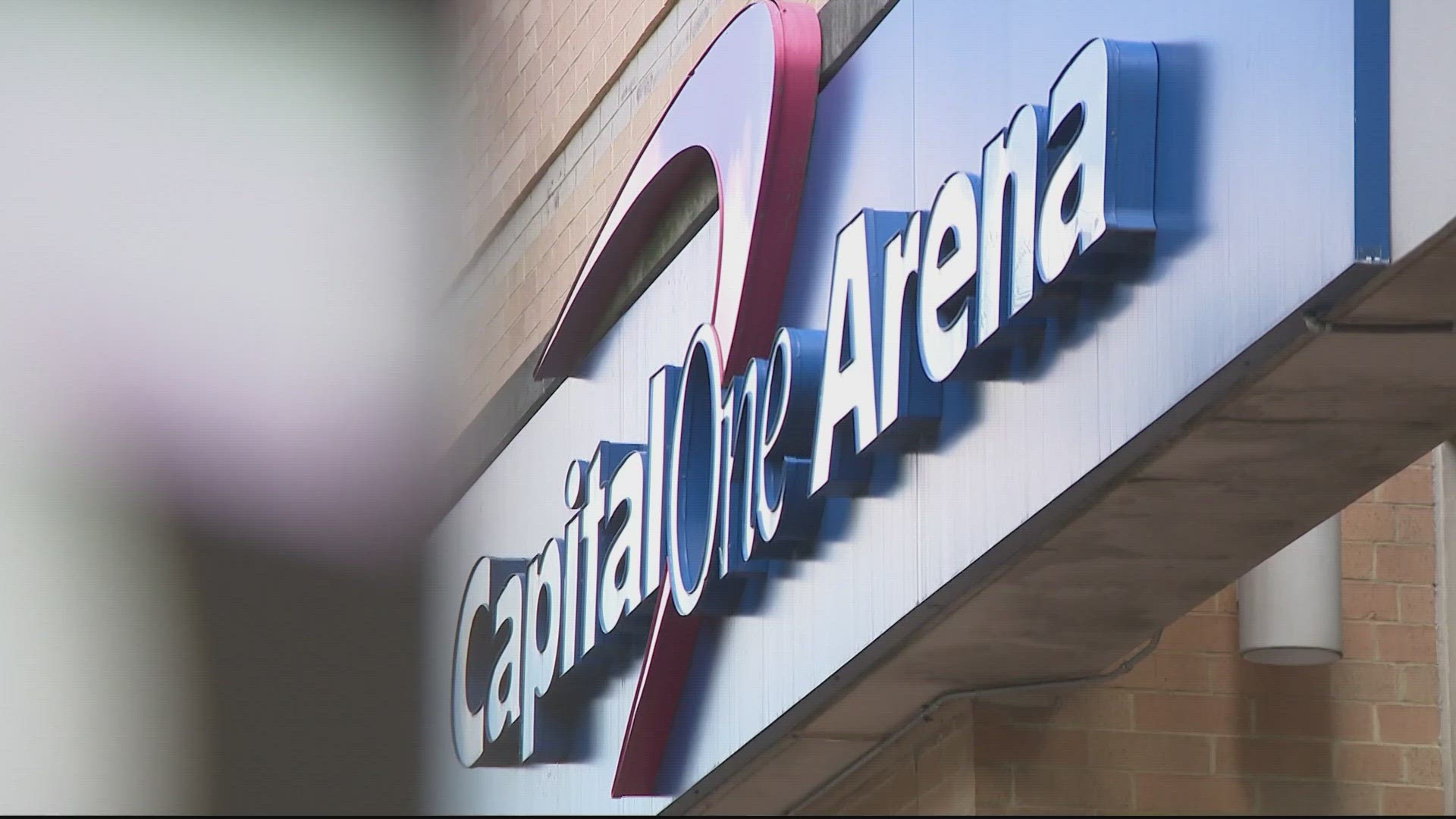WASHINGTON — If you want to start a debate in Washington, D.C. that doesn’t involve politics, try asking whether professional sports stadiums are worth investing taxpayer money in.
In October, D.C. announced it was shelling out a $20 million for a new scoreboard at Nationals Park as part of its lease agreement with the team.
District officials are also in negotiations with Monumental Sports and Entertainment Owner Ted Leonsis over potential taxpayer funded upgrades at Capital One Arena.
Meanwhile, Mayor Muriel Bowser continues her push to bring the Washington Commanders back to D.C., recently tweeting a video in which she and football greats Doug Williams and Darrell Green shared memories of RFK Stadium and their desire for the Commanders to build their new stadium on the site.
“I know it can,” Bowser said when asked if a Commanders return to RFK can happen.
And now, debate is raging on social media about whether pro sports stadiums are a smart use of taxpayer money.
“The results are very, very consistent in saying that, stadium construction, hosting professional sports teams, arena construction really has very, very little impact on local economy,” said Dennis Coates, a professor of Economics at the University of Maryland Baltimore County.
Coates has studied and written papers on the impact of professional sports venues on local economies for years.
“I mean, maybe they break even,” Coates said when asked if local government’s make back what they invest in stadium and arena construction. “But that's highly doubtful.”
But data obtained by WUSA9 revealed that’s turning out not to be true of Nationals Park. According to the DC Office of the Chief Financial Officer, the District is ahead of schedule repaying the bonds it took out to help build it.
A little more than halfway through the deal, the District has paid back 67% of the debt thanks to excess revenues generated from all the growth in Navy Yard. In fact, $102 million of that excess revenue is being funneled to D.C.’s general fund over the next five years.
Meanwhile D.C. Bid, an association of 11 business improvement districts across D.C., says Capital One Arena, which was privately financed and has never received public financing, has generated $800 million in cumulative tax revenue to D.C. since it opened. $54 million in 2023 alone.
Despite that, economists like Coates aren’t convinced.
“It's like a shell game,” Coates said. “You're moving activity from, you know, many, many neighborhoods and focusing it all in one neighborhood on a very small number of days.”
“But everybody who goes to a bar or restaurant around there doesn't go to a bar restaurant in some other neighborhood.”
Whether the city could have financial success with a new Commanders stadium remains uncertain. Adjusted for inflation, the $535 million D.C. shelled out for the baseball park in 2006 equates to a whopping $811 million dollars in 2023. And football stadiums are a lot more expensive than baseball stadiums, and host less events.
When D.C. built Audi Field, taxpayers spent $150 million to buy and prepare the site, while DC United paid for design, construction, and operation of the stadium. D.C. government gets a very small percentage of ticket sales, but the District does collect tax revenue on investments around the stadium.
Mayor Bowser has asked the Department of Planning and Economic Development to commission a “D.C. Sports Study” to identify potential financing models for public investment in new and existing sports facilities. And to measure the economic impact of sports and entertainment venues in the District.

